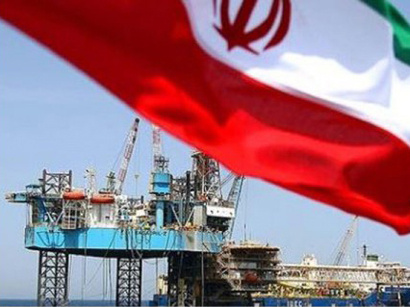June, 20, 2014

The Sri Lankan Government today rejected a news report, quoting a minister, claiming that Sri Lanka imports Iran Crude via third parties to avoid US sanctions.
“The attention of the Ministry of External Affairs has been drawn to a Reuters news item attributing to the Government Spokesperson and Minister of Mass Media and Information Keheliya Rambukwella, a statement that Sri Lanka imports Iran Crude via third parties to avoid US sanctions.”
“The Government of Sri Lanka categorically rejects the contents of this news item as being wholly incorrect and devoid of any truth,” a statement said on Friday.
Reuters reported on Thursday that Sri Lanka has been buying Iranian crude through third parties from various countries and avoiding sanctions with the understanding of the United States.
“We have been buying (Iran crude) from third parties. But we have had some understanding with the U.S. as well,” Keheliya Rambukwella, the government spokesman, was quoted as saying to reporters in Colombo at a briefing to announce an expansion of the state shipping fleet.
“This is not the quota. This is in addition to the quota. For instance, Malaysia supplied that happened to be Iranian oil. It is a very closed secret,” he said.
Officials from the U.S. embassy could not immediately be reached for comments. In the past, U.S. embassy officials have told Reuters that Sri Lanka had been abiding by the sanctions.
In November, the government cancelled a shipment of crude after it was suspected of containing banned Iranian oil.
The nature of the understanding between Sri Lanka and the U.S. government was not immediately clear. Rambukwella did not elaborate.
“Iran was supplying to ‘X’ place under a different name and from there to other places. Wherever there are sanctions, third parties are involved,” Rambukwella was quoted as saying by Reuters.
Sri Lanka has been struggling, because its only refinery - the decades-old 50,000 barrels-per-day (bpd) Ceylon Petroleum Corporation (CPC) plant - is configured to run on Iranian crude.
The Sapugaskanda refinery, on the outskirts of the capital, Colombo, has faced closure from time to time as it has scrambled to fill shortfalls due to sanctions on Iranian oil.
TIME TO TIME
Asked the number of Iran crude cargoes that Sri Lanka has obtained through third parties, Rambukwella said, “I have no idea, but it was time to time.”
“At the end of the day, you get the oil, and our refinery is meant for Iranian crude. They have a sulphur problem and other issues,” he said.
Government officials in the past have said the United States had told them Sri Lanka would no longer be eligible to import Iranian crude after it imported no cargoes from Iran in the second half of 2012.
Sri Lanka cut imports of Iranian crude sharply to be eligible for waivers, but it has said that Western sanctions punish countries that depend on Iran’s oil.
In June last year, Sri Lanka’s oil minister said the United States was unlikely to grant another waiver to Sri Lanka to allow it to import Iranian crude.
Sri Lanka was twice granted waivers after U.S. sanctions came into effect in early 2012. It received its first waiver in June 2012 after cutting imports of Iranian crude by 23 percent. New waivers would be based on a gradual reduction in imports.
It was unable to buy any Iran crude parcels in the second half of 2012, largely because sanctions imposed on Iran by the European Union made it difficult to secure ships or insurance.
The government has been importing Oman light and Murban crude from Abu Dhabi, but CPC officials have said the yield at the refinery from processing these alternative crudes has been 15 to 20 percent lower than that from Iran light.
Video Story